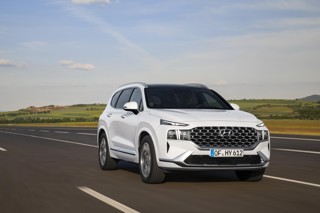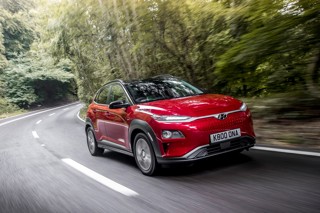In May and June, Fleet News surveyed all the major manufacturers to find out how they were responding to the coronavirus pandemic, how they are supporting their fleets customers and their views on the type of impact it would have on the fleet sector.
The resulting article was published in the June edition of Fleet News.
Here is Hyundai Motor UK's response.
Fleet News spoke to Ashley Andrew, Hyundai Motor UK managing director (answers as at 8/6/20)
How are you and your team staying operational in times of Covid-19?
We took the decision not to seek Government support and did not furlough any of our staff, the Fleet Sales team therefore has remained operational throughout.
This has proved to be the right decision as we have seen significant activity with end users and leasing company account managers looking to use lockdown as a chance to review fleet policies. We have set up over 120 new policy agreements during lockdown.
What action are you taking to support fleets during the Covid-19 crisis?
We have worked with customers hit hardest through the pandemic to accommodate cancelled orders and to delay some deliveries. We have also arranged special dealer deliveries during lockdown where key workers are involved.
Will Covid-19 have a bigger and longer lasting impact on our industry than the financial crisis in 2008?
The fleet industry will naturally be impacted by Covid-19, however - as with the 2008 crisis - everyone learns to adapt and evolve.
Salary sacrifice will be a greater opportunity to support staff, generate cost savings and reduce CO2. The move from internal combustion engine (ICE) to electric will continue to accelerate, and as staff have now got used to traveling fewer miles, the potential range anxiety of an electric car will be far less of a deciding factor.
Fleet sizes may have to be reduced if some business have to restructure but equally, some industries will have to expand following the impacts of this pandemic so it will likely balance out in the long run.
How much of a decline in total market fleet sales are you forecasting this year?
Whilst the fleet market will face significant challenges over the remainder of 2020, it is likely to see greater interest in personal contract hire (PCH) due to the lower risk of having only monthly rentals to pay.
The public sector remains buoyant, but it is too early to comment regarding the impact on individual corporate fleets.
Please outline your exit strategy and how you believe the way business is carried out in future might change – the so-called ‘new normal’.
Hyundai fleet will continue to be as agile as possible in order to move forward with its strategy of sustainable growth.
We will engage with all available channels in the wider fleet market, end-user, public sector and working with the fantastic innovative FN50 leasing companies.
Hyundai has already and will continue to benefit from a number of new vehicles in 2020, with the majority of these featuring electrified powertrains for the first time.
We are also uniquely placed in terms of having two full battery electric vehicles (BEVs) with the IONIQ and Kona. Having strong supply of both these models will give fleets and leasing companies full confidence to market the cars to their drivers and customers.
How soon do you think fleet sales will recover after the coronavirus threat is over?
It is too early to say but consumer confidence is the key to recovery. Hyundai is working with every customer to understand their short-,, medium- and long-term requirements for vehicles.
Every part of the industry needs to have the capacity to meet customers’ expectations whenever the market reopens to anything approaching the 'old normal', and we are of course no exception to this. Adopting a customer-centric and flexible approach will be our main priority.
Will we experience a break on the development of MaaS and fleet electrification?
Many company car drivers will be seriously re-evaluating their driving habits and business journeys following Covid-19, and we believe this will only serve to further the interest and demand for electrified vehicles (EVs).
Hyundai already has the widest choices of powertrain options in the industry with battery electric, hybrid, plug-in hybrid and hydrogen fuel cell, and we expect that consumer demand for these powertrains will continue to grow on a steep upward trajectory.





















Login to comment
Comments
No comments have been made yet.